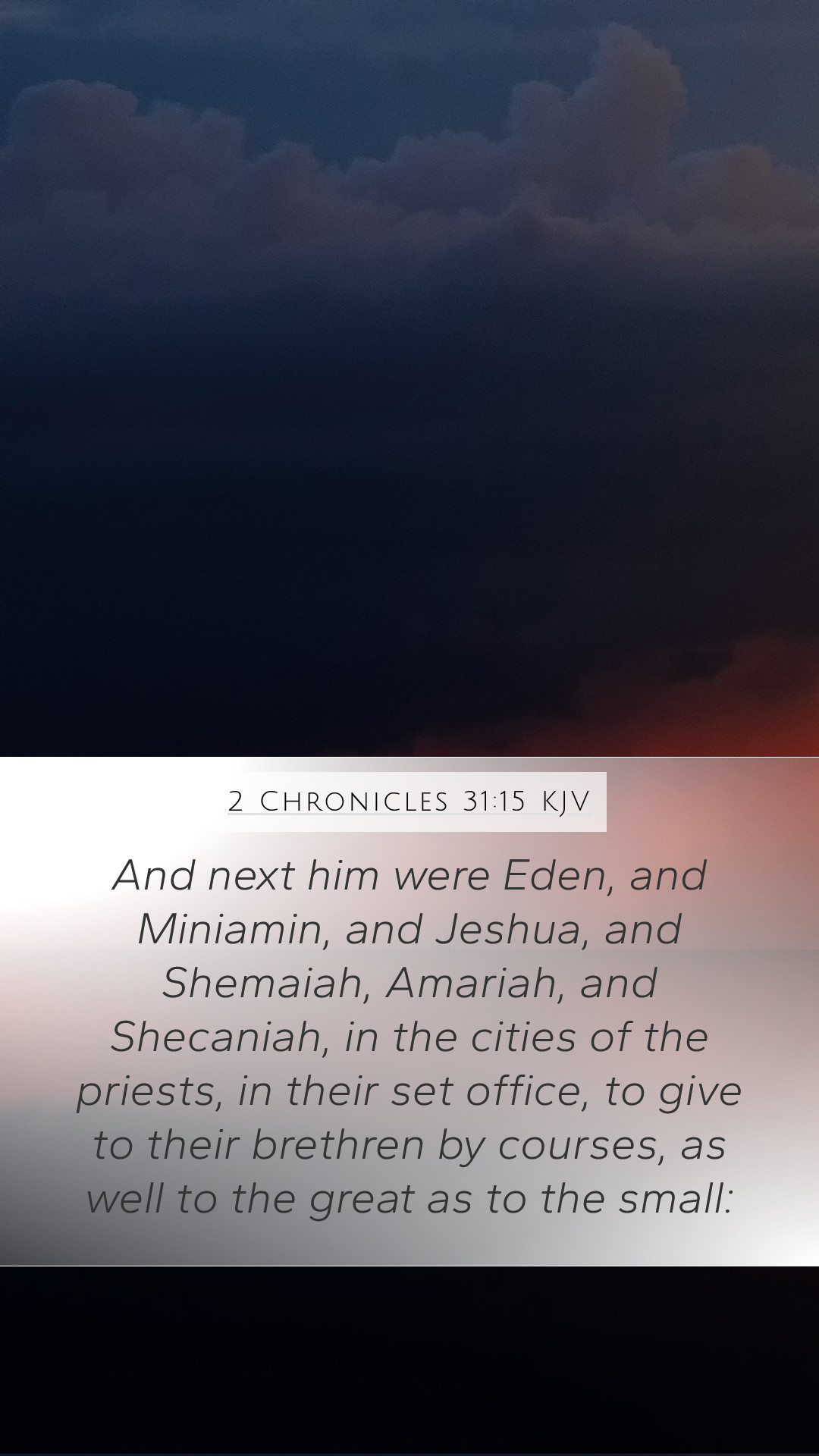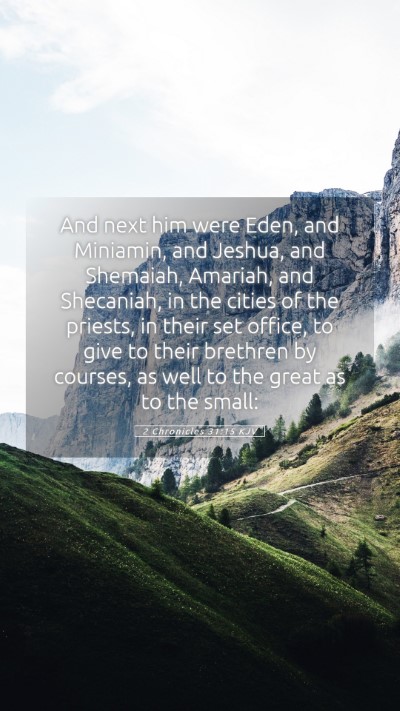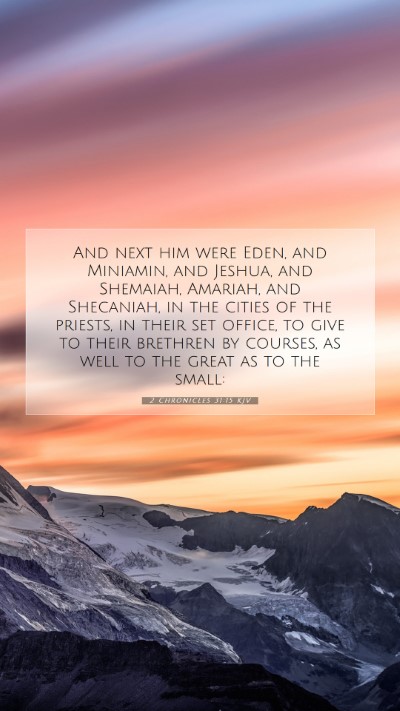Understanding 2 Chronicles 31:15
This passage highlights the significance of the priestly duties during King Hezekiah's reign in Judah. The actions of the priests, as noted in this verse, emphasize the importance of the spiritual leadership within the Israelite community. Scripture analysis reveals that this verse captures a moment of organized worship and reverence towards God, which was fundamental in maintaining the covenant relationship between God and His people.
Bible Verse: 2 Chronicles 31:15 - "And next to him were Eden, and Miniamin, and Jeshua, and Shemiah, Amariah, and Shekaniah, in the cities of the priests, in their set office, to give to their brethren by courses, as well to the great as to the small."
Verse Meaning and Commentary
In the context of 2 Chronicles 31:15, Hezekiah had recently restored the worship practices that had fallen into neglect. This restoration was crucial for re-establishing the nation's spiritual integrity.
-
Matthew Henry's Commentary: Matthew Henry elaborates on how King Hezekiah's reformations were aimed at reviving the worship of God. This verse encapsulates the role of the priests in the distribution of offerings which was vital to the sustenance of their ministries and the welfare of the people.
-
Albert Barnes' Notes: Barnes points out that the meticulous organization of the priests was essential to ensure that every member of the community, regardless of social status, received their due offerings. This reflects the equity present in the governance of religious duties.
-
Adam Clarke's Commentary: Clarke emphasizes the role of the priests as mediators between God and the people, suggesting that their orderly conduct in the cities ensured that spiritual responsibilities were fulfilled. This laid the groundwork for a proper worship experience and contributed to national healing.
Thematic Insights
The orderly service of the priests highlights several themes in Scripture, including:
- Organized Worship: The structure of priestly duties showcases the necessity of order in worship practices, which is a recurring theme throughout the Bible.
- Community Support: The mention of providing for both the great and the small illustrates the value of inclusivity in spiritual support and communal sharing.
- Spiritual Leadership: This passage emphasizes the significant role of spiritual leaders in guiding the people towards a God-pleasing life.
Application in Daily Life
For contemporary readers, 2 Chronicles 31:15 serves as a reminder of the importance of organized and communal worship. Engaging in Bible study groups or online Bible study can provide insights into how to structure one’s spiritual life and responsibilities toward others in the community.
Applying this verse today:
- Consider how you can contribute to your local faith community, ensuring equitable support and involvement.
- Reflect on the ways in which spiritual leadership is exhibited within your own contexts.
- Engage in Bible study lessons that foster collaboration and collective worship practices.
Cross References
This passage can be related to several other scriptures that explore similar themes of worship and service:
- 1 Chronicles 23:4: Discusses the organization of the Levites and their roles.
- 2 Chronicles 29:34: Highlights the importance of priests performing their duties during the reestablishment of worship in the temple.
- Nehemiah 12:47: Explains the importance of the priests and Levites during the time of rebuilding Jerusalem.
Conclusion
Overall, 2 Chronicles 31:15 serves as an insightful reflection of the biblical imperative for structure and unity in worship. Understanding this verse provides important Bible study insights that can enhance one's personal practice of faith as well as community involvement. The verse invites us to think critically about the role individuals play in supporting the spiritual life of their communities, reminding us that both leaders and followers have vital responsibilities in the worship of God.


